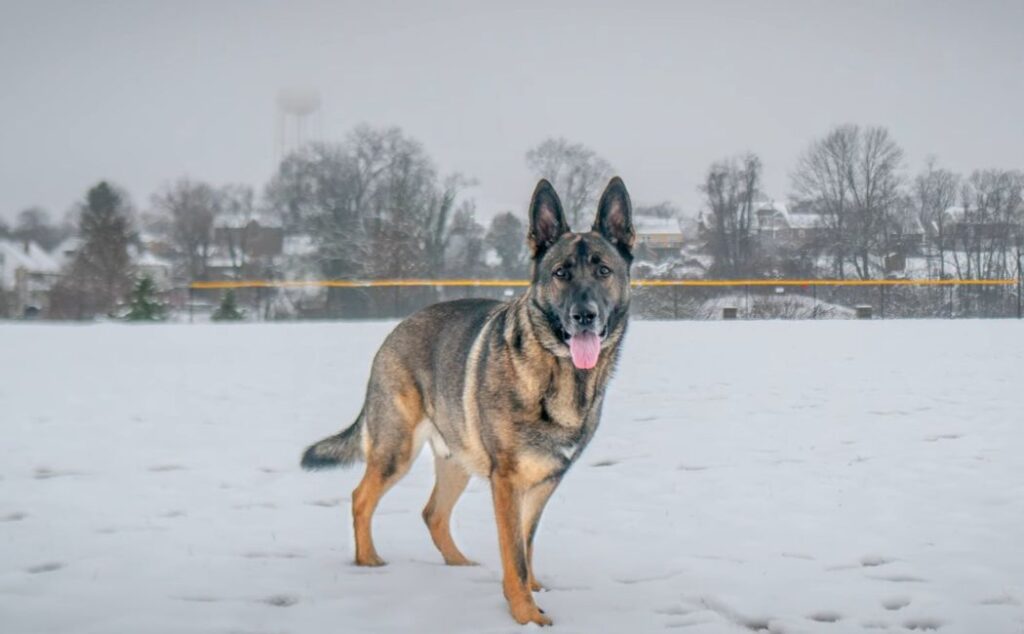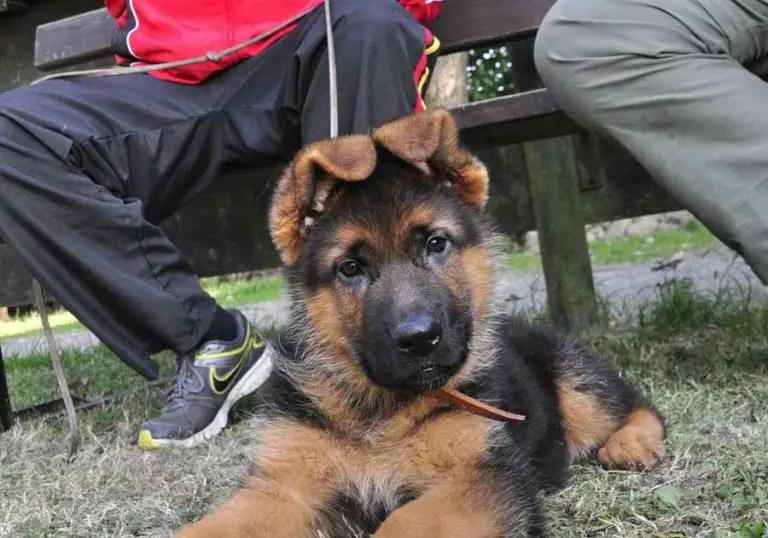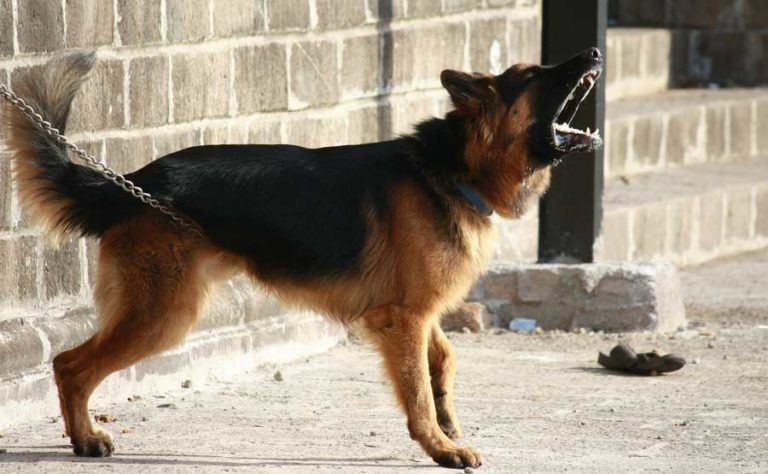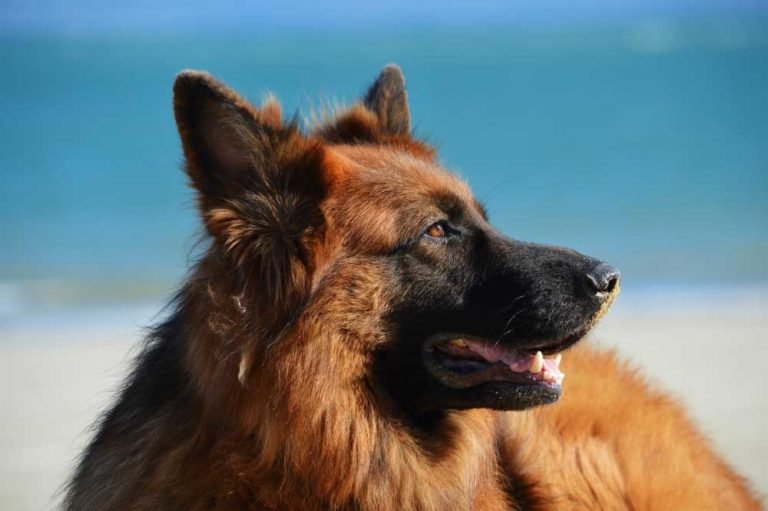Can German Shepherds Sleep In The Cold?
Yes, German Shepherds can sleep in the cold. Most GSDs can tolerate temperatures as low as 30°F or -1°C without any issues. In fact, many long-haired GSDs actually prefer colder temperatures and can withstand even colder temperatures than their short-haired counterparts.
So if you’re wondering whether or not your German Shepherd can sleep outside in the cold, the answer is most likely yes! Just make sure that they have access to a warm shelter in case they get too cold.

1. What temperature is too cold for a German shepherd to sleep in?
Many German Shepherds can tolerate sleeping in temperatures as low as 30°F or -1°C. However, long-haired GSDs may be able to withstand even colder temperatures. Factors such as age, health conditions, activity level, and weight may also affect a German Shepherd’s ability to stand the cold weather.
2. How do German shepherds fare in cold weather?
German shepherds are one of the most popular dog breeds in the world, and they’re also well-suited for cold weather. German shepherds have a double coat that helps protect them from both cold and heat. Many owners report that their dogs love playing in the snow.
If you’re considering getting a German shepherd, or if you already have one, there’s no need to worry about how they’ll fare in colder climates. Their double coat will keep them warm, and they’re likely to enjoy playing in the snow just as much as any other dog breed.
3. Do all German shepherds have thick fur coats?
No, not all German shepherds have thick fur coats. German shepherds come in a variety of coat types, from short and dense to long and fluffy. Some German shepherds may have only a small amount of fur around their ears, chest, tail, or on the backs of their legs.
4. How can you tell if your German shepherd is too cold?
If your German shepherd is shivering, howling or barking, struggling to breathe, burrowing, getting anxious, whining, struggling to move or lifting their paws off the ground, or hunching their back, they may be too cold. If you notice any of these signs in your dog, it’s important to take them inside and warm them up as soon as possible.
There are a few things you can do to help warm up your dog if they’re too cold. First, put a blanket over them and make sure they’re in a warm room. You can also give them a warm bath or use a hair dryer on low heat to help them thaw out. If your dog is still showing signs of distress after taking these measures, call your veterinarian for further instructions.
5. What are some ways to keep your German shepherd warm in the winter?
German shepherds are a popular breed of dog, known for their loyalty and intelligence. They are also prone to cold weather and need special care to keep them warm in the winter. Here are some tips:
– Provide a warm, cozy place to sleep. This can be done with a soft bed and a thick blanket. – Get your dog a jacket or sweater for extra warmth. – Provide adequate shelter from the cold weather. – Protect and inspect your dog’s paws regularly to prevent frostbite or other injuries. – Be aware of the signs of hypothermia in dogs and take steps to prevent it.
6. Should you bring your German shepherd inside during extreme weather conditions?
Yes, you should bring your German shepherd inside during extreme weather conditions. Some symptoms of exposure to extreme weather conditions include panting, shivering, and weakness.
If your German shepherd is exposed to extreme weather conditions for too long, it can result in serious health problems or even death.
7. Are there any health risks associated with sleeping in the cold for German shepherds?
German shepherds are one of the most popular dog breeds in the world, and they are known for their loyalty, intelligence, and strength. They are also known for being able to withstand cold weather better than most other dog breeds. This is because German shepherds have a thick coat of fur that helps to keep them warm in cold climates.
So, if you’re wondering whether or not it’s safe for your German shepherd to sleep in the cold, the answer is yes – there are no health risks associated with sleeping in the cold for German shepherds. In fact, sleeping in the cold can actually be beneficial for German shepherds, as it can help to keep their joints and muscles healthy.
8. How can you make sure your German shepherd is comfortable when sleeping outside in the cold?
German shepherds are a versatile breed of dog that can adapt to many different environments, including sleeping outside in the cold. However, there are some steps you should take to ensure your German shepherd is comfortable when sleeping in cold weather.
One thing you can do is provide a warm bed or blanket for them to sleep on. This will help them stay warm and cozy throughout the night. You should also make sure they have access to shelter from the wind and rain. This way, they can stay dry and out of the elements.
Lastly, it’s important to keep them well-fed during colder months. A nutritious diet will help them maintain their energy levels and stay warm from the inside out.
By taking these precautions, you can rest assured knowing your German shepherd will be comfortable when sleeping outside in the cold weather.
9. Is it ever okay to let your German shepherd sleep in the car during colder months?
It is generally safe to leave your German shepherd in the car for a maximum of five minutes, provided that the outside temperature is above freezing and below 70 degrees. However, you should never leave your dog in the car unattended for extended periods of time, regardless of the weather conditions.
10. What are some tips for keeping your German shepherd safe and warm during wintertime?
As winter approaches, you may be wondering how to best care for your German shepherd. After all, these dogs are known for their thick coats of fur, which can make them seem like they’re built for cold weather.
However, there are a few things you should keep in mind to ensure that your German shepherd stays safe and warm during the winter months.
First, invest in a dog coat or sweater. This will help to keep your German shepherd’s body temperature stable in colder weather.
Additionally, make sure that your dog has access to plenty of fresh water. They may not feel as thirsty in cold weather, but it’s important to prevent dehydration.
Lastly, keep up with your dog’s exercise routine during the winter months. This will help them stay warm and maintain their muscle mass.
Of course, you also need to be aware of common winter hazards for dogs. For example, antifreeze and ice melt products can be toxic if ingested by a curious pup.





